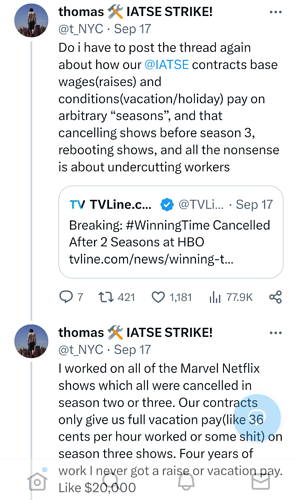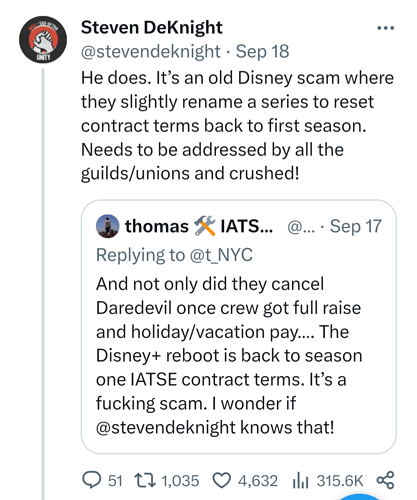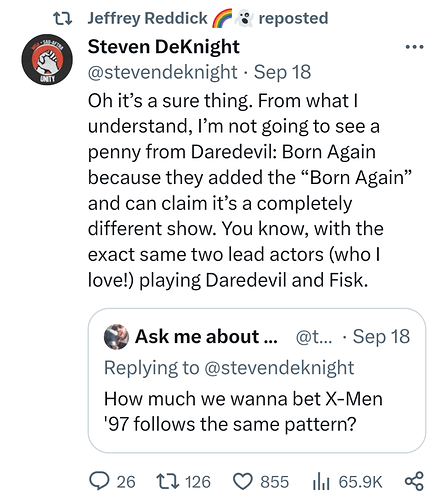The absolute HEAT on this 5-year old analysis from a now-deleted Reddit account on the arc of Mad Men and why Don Draper disintegrated as he told a bullshit story about Hershey bars and childhood:
Summary
Season 6 was a nightmare for Don. His marriage was basically dead, his drinking was spiraling, and it was becoming even clearer that his place in the cultural hegemony was almost gone. He couldn’t even depend on foreseeable societal change: with MLK and RFK murdered in the same year (“Jesus had a bad year”, he says to the minister as “Band of Gold” plays), the youthful idealism that he thought was pushing him out was itself being killed, replaced by an even deeper sense of hopelessness.
In some ways Ted Chaough is to Don what the (idealized) 60’s are to the 50’s: brighter, kinder, more open, more progressive. This is characterized by how much more attracted Peggy (I believe our foremost representative of a contemporary cultural “participant”) is to Ted than Don. He fears Ted but also knows how much Peggy admires and loves him. When he finds out that they are lovers, he demolishes them in the St. Joseph’s “Rosemary’s Baby” pitch, asserting his dominance and presumably exposing Ted’s false virtue. He would have been right to encourage them to end a romantic relationship in a different way, but he chose to do so in a way which was very damaging to Ted . “You’re a monster”, Peggy says to him. Ted is the expression of everything Peggy wants the world to be like, and Don can’t stand to see it. In his vindictiveness, he would rather see the idealism of Ted (and the 60’s) crumble rather than be replaced by it.
Amidst all this marital, professional, cultural, and existential strife, Don sees (AKA steals from Stan in another act of cultural theft) an opportunity to start again in his personal Shangri-La: California. He can forget about the 50’s vs the 60’s, him vs Ted, fix his marriage, and regain a sense of purpose in his work. He can escape his problems by ignoring them.
However, he is tripped up by an extraordinary request by his rival, Ted: to let Ted go to California in his place, to give up his place in Shangri-La. Ted’s explanation is simple, he needs to keep his family together, for his love of Peggy is idealistic but harmful to the people he has already pledged his life to. This is the 60’s admitting to the 50’s that maybe a little bit of that cultural traditionalism was good. That all the grooviness and free love and weird Beatles tracks that Ted represents and Don doesn’t understand might not be the answer to everything, and that the simple, traditional love between a parent and child is more important. Don rebuffs him.
During the Hershey meeting, though, Don snaps. His pitch is one of pure 50’s nostalgia, the child feeling the love of the parent expressed through the chocolate totem. However, Don is pretending, he has never once felt that feeling. That is because although Don represents the 50’s in all its traditional glory, he is not Don. Dick Whitman comes from the same cultural nihilism that is now threatening Ted, Ted’s family, 50’s traditionalism, and the 60’s idealism. He realizes that the presence of a loving family is the glue that holds families, societies, and individual’s lives together, and even though he never had it and has to some extent fucked it up with his own children, he can still help Ted.
He sheds his mask in front of everyone, shows them the morbid possible reality that threatens everyone (in the heartbreaking poverty of his childhood), and then gives up his place to Ted. He is giving Ted some chance to retain real meaning and love in his life, outside his pretend fantasies of 50’s traditionalism or the fading hope of 60’s idealism. “California” is an unknown compared to these, but it holds new possibility. Then he leaves and shows his children who he really his.
I wrote this up really quick and probably didn’t connect all the cultural symbolism perfectly, but I think it gets to the core of how Don’s meltdown in the Hershey represents a breaking point for his personal and society’s wider cultural anxieties.





